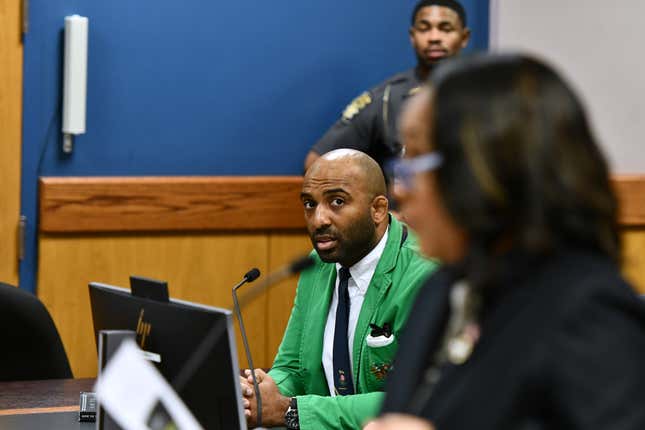
Donald Trump’s co-defendant in his Georgia racketeering case, Harrison Floyd, was back in court this week after a series of tweets landed him in hot water with the Fulton County District Attorney. On Tuesday, District Attorney Fani T. Willis took the unusual step of appearing in court herself to call for a judge to revoke Floyd’s bond.
Since being released from jail, the former Black Voices for Trump director has repeatedly posted about his case, tagging Willis and witnesses, including Ruby Freeman, a Black election worker whom Floyd is accused of harassing.
Days ahead of the hearing, Willis argued in a motion that his tweets constituted witness intimidation and violated the terms of his release. She asked the court to revoke Floyd’s bond agreement and send him immediately back to jail.
Fulton County Superior Court Judge Scott McAfee refused to send Floyd back to jail. However, he agreed with the District Attorney that some of the posts did violate the bond agreement. Judge McAfee ordered the two parties to propose a new, more specific bond agreement to prohibit intimidating posts against witnesses. The ruling means that, at least temporarily, Floyd will remain out of jail as he awaits trial.
Since the decision, Floyd appears to have taken down posts referencing other witnesses. But his posts deriding District Attorney Willis have remained public on social media.
Floyd is the first defendant in this case to have their bond agreement threatened. He was also the first defendant in this case to serve jail time. All of his other co-defendants were able to negotiate bond agreements ahead of turning themselves in for arraignment. However, Floyd did not have an attorney representing him at the time. At his initial hearing, Floyd said that he could not afford to retain counsel.
The case is far from over, and while the judge’s ruling on Tuesday means that Floyd will not return to jail for now, there’s still a lot that could happen between now and the trial.

